Senior corporate peeing on woman mid-air is proof that Indian drinkers are prone to freeloading. Even as we ready to relax social awkwardness around public drinking with bars inside airports, community gin festivals and cocktail weeks, hospitality insiders and behaviour experts share embarrassing details of our failure with liquor manners
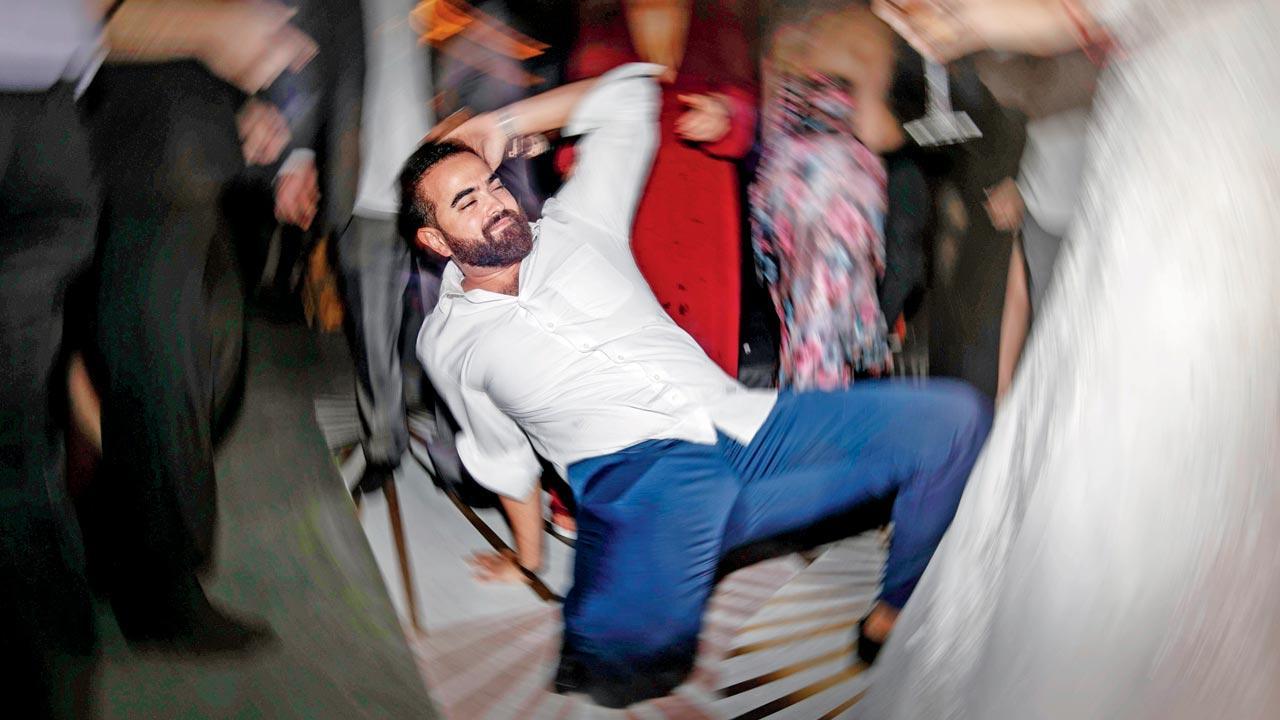
Representation pic
Goa-based Pooja Joshi has had a complex relationship with alcohol for many years now. “Every time I drink, I become someone else,” says Joshi, 31, an artist and yoga instructor. “I have no control over my mouth, and tend to get verbally abusive. This was affecting my relationships; even my career was going downhill.” In 2018, she was diagnosed with complex post-traumatic stress disorder (C-PTSD). “I have a history of family abuse—my father and mother were physically abusive to each other,” she says, adding that this is also why she doesn’t get physically abusive with another person. “I have engaged in self-harm in the past. When I realised that this was not normal, I sought therapy.” It was during therapy that Joshi learnt how her mental health condition had been exacerbated by her alcohol dependence. Despite many attempts, Joshi has failed to give up alcohol. “I am drinking as we speak,” she tells us over a phone call. “It’s something beyond my control.”
From being a playground for Mahatma Gandhi’s prohibition experiments, India, according to alcohol beverage industry experts, is slowly becoming an alcohol-forward country—it is estimated that 79.9 million men and 5.39 million women consume alcohol in the country (see box). However, recent incidents indicate that not everyone has been able to act responsibly towards their drinks.
 Goa-based Pooja Joshi admits that she has struggled to develop a healthy relationship with alcohol for a while. She tells mid-day, that she has noticed herself verbally abusive when she drinks, a behaviour that has affected her relationships and cost her professional success. In 2018, she sought therapy and it made her realise that she suffers from complex post-traumatic stress disorder
Goa-based Pooja Joshi admits that she has struggled to develop a healthy relationship with alcohol for a while. She tells mid-day, that she has noticed herself verbally abusive when she drinks, a behaviour that has affected her relationships and cost her professional success. In 2018, she sought therapy and it made her realise that she suffers from complex post-traumatic stress disorder
In November last year, Shankar Mishra, a passenger on an Air India flight from New York to Delhi, unzipped his pants and urinated on an elderly co-passenger in an inebriated state. The flight crew reportedly made the woman sit at the same seat after covering it with blankets. After an uproar on social media and news channels, Mishra was arrested from Bengaluru last week. Just a few days ago, Mishra claimed that the complainant had soiled her own seat, saying that she was suffering from a prostate-related disease. Rubbishing the claims, the complainant on Saturday said that these allegations are “false and concocted”.
Globally, alcohol use disorder (AUD)—a pattern of alcohol use that involves problems controlling your drinking, being preoccupied with alcohol, continuing to use alcohol even when it causes problems, having to drink more to get the same effect—continues to remain a challenge. According to a 2020 study titled Alcohol consumption in India: An epidemiological review, published in the Journal of Family Medicine and Primary Care, the 12-month prevalence of AUDs in India in the year 2010 was 2.6 per cent and that of alcohol dependence was 2.1 per cent.
 Senior cabin crew Varsha Chavan, who has worked with Jet Airways and Oman Airlines in the past, has witnessed many Indians get drunk on flights. The problem, she says, is that they know they can get away with their behaviour
Senior cabin crew Varsha Chavan, who has worked with Jet Airways and Oman Airlines in the past, has witnessed many Indians get drunk on flights. The problem, she says, is that they know they can get away with their behaviour
Behaviourist Ishmeet Kaur says that while people are taught how to “earn and hustle, nobody teaches us how to practice restraint and control”. And that can be said about drinking as well. “We need to have some kind of education that says drinking is normal, but don’t go overboard.” Hemang Chandat, sales director of Monika Alcobev, one of the country’s largest importers and distributors of international wines and spirits, agrees. “I think the factor determining [alcohol consumption] behaviour is the education around alcohol, and knowing what it does to you and how much of it is acceptable,” he says.
Varsha Chavan, 30, a senior cabin crew who has worked with Jet Airways and Oman Airlines in the past and is currently working with a leading Indian airlines company, says she has witnessed many Indians get drunk on flights. “But we are always careful… If someone has started losing control over their body or speech, and still asks for another glass, we handle the situation with standard tricks, like delaying their drinks or diluting it with a lot of water.” As a rule, says Chavan, they are allowed to stop an unruly passenger. “If things get out of control, we call the pilot and inform security. At times, nearby passengers also come to our rescue.”
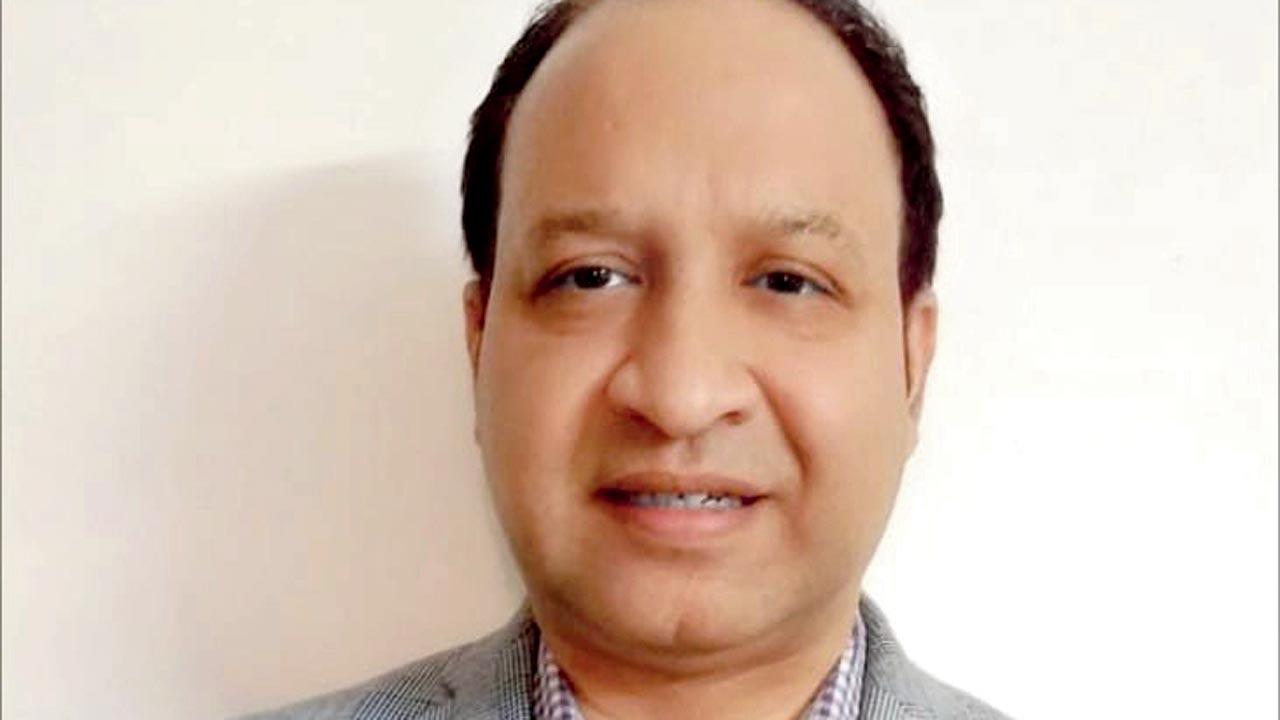 Vijay Rao, event planner
Vijay Rao, event planner
Contrary to popular opinion that alcohol hits harder and faster at a higher altitude than it does on ground, Dr Sanjith Saseedharan, Consultant and Head Critical Care, SL Raheja Hospital, Mahim-A Fortis Associate, says that high altitudes neither increases the effect or potency of alcohol nor the blood alcohol content. “But at higher altitudes, there is a higher level of dehydration that can increase the incidence of altitude sickness, which in some individuals manifests as headache, nausea, and shortness of breath. Alcohol consumption at high altitudes can also sometimes lead to migraine, and contribute to hypothermia,” she adds.
Jaipur-based Vikram Mittal, 37, says when he joined the merchant navy in 2004, he was told about a no-alcohol policy that had been introduced by his company due to an unfortunate incident a year prior. “We heard that once a fellow cadet member’s relative [cadets and officers were sometimes allowed to bring their families on board for a certain period] fell into the ocean and died… nobody realised until much later. An inquiry was instituted, and everyone was found to be drunk,” he informs. According to him, it’s natural for people to bond over drinks while at sea. “Most of the time, you are by yourself for a period that stretches anywhere between six and eight months, working day in and day out… loneliness is bound to creep in. Alcohol helps you loosen up. Buying a drink is also how a senior member bonds with juniors,” says Mittal, who is now an entrepreneur making and selling kombucha under the brand MAVI’s. According to him, some use alcohol to unwind, “some are shy and drink to make conversation easy and some drink to feel a certain numbness”. “Sometimes it brings out the worst in people, making them act on emotions that have been suppressed. I have seen fights break out on ship on multiple occasions.”
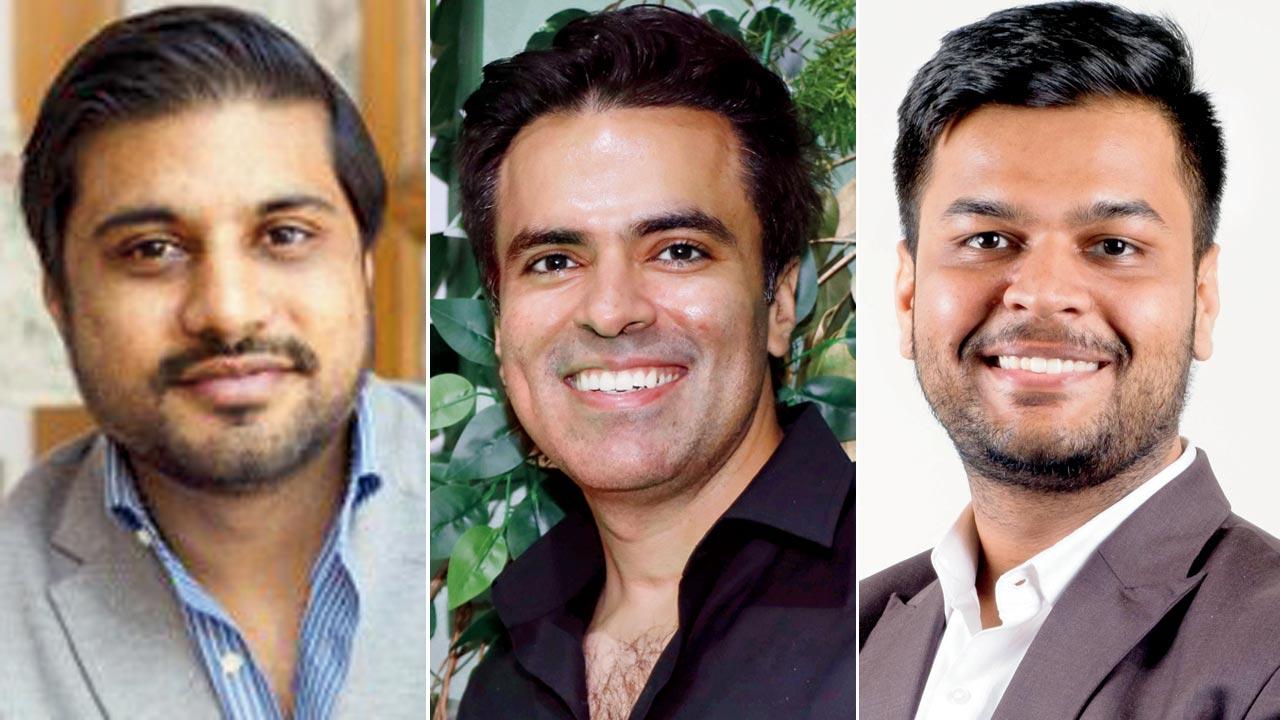 Rakshay Dhariwal, Lalit Kalani and Hemang Chandat
Rakshay Dhariwal, Lalit Kalani and Hemang Chandat
There are several reasons why people overdo or abuse alcohol. The most common being peer pressure and feeling that consuming liquor will make them socially acceptable, says Dr Kedar Tilwe, consultant psychiatrist with Fortis Hospital Mulund. “There is also a misconception that alcohol will help them with sleep or anxiety or offer an escape, but it neither helps in the short term, nor in the long run,” says Tilwe, adding, “If you are taking alcohol repeatedly, there will come a point when you would be dependent on it and feel withdrawal symptoms like sweating, shivering, sleep disturbance, hallucination, etc. without it. This is called alcohol dependence disorder and one may feel that if they take alcohol, they won’t feel any of it.”
Karan Shah is the owner of Vice and The Terrace in Juhu, Sirocco in Versova and NXT LVL in Thane. “When people cross the drinking threshold, they are either bursting with love and affection, or turn arrogant. We meet both kinds of people.” He feels that peer pressure pushes people to drink in excess. “But one mustn’t do it,” says Shah, adding that it is the responsibility of those on the other side of the table to ensure that they practice restraint when serving them. “Our protocol is simple: If we see someone losing control over themselves, we stop serving them liquor. The bartenders and servers are instructed to tell them politely that they can’t be served anymore. Of course, many respond rudely. Thankfully, they usually come in groups and have people around to take care of them. It is very rare that we need to involve security.”
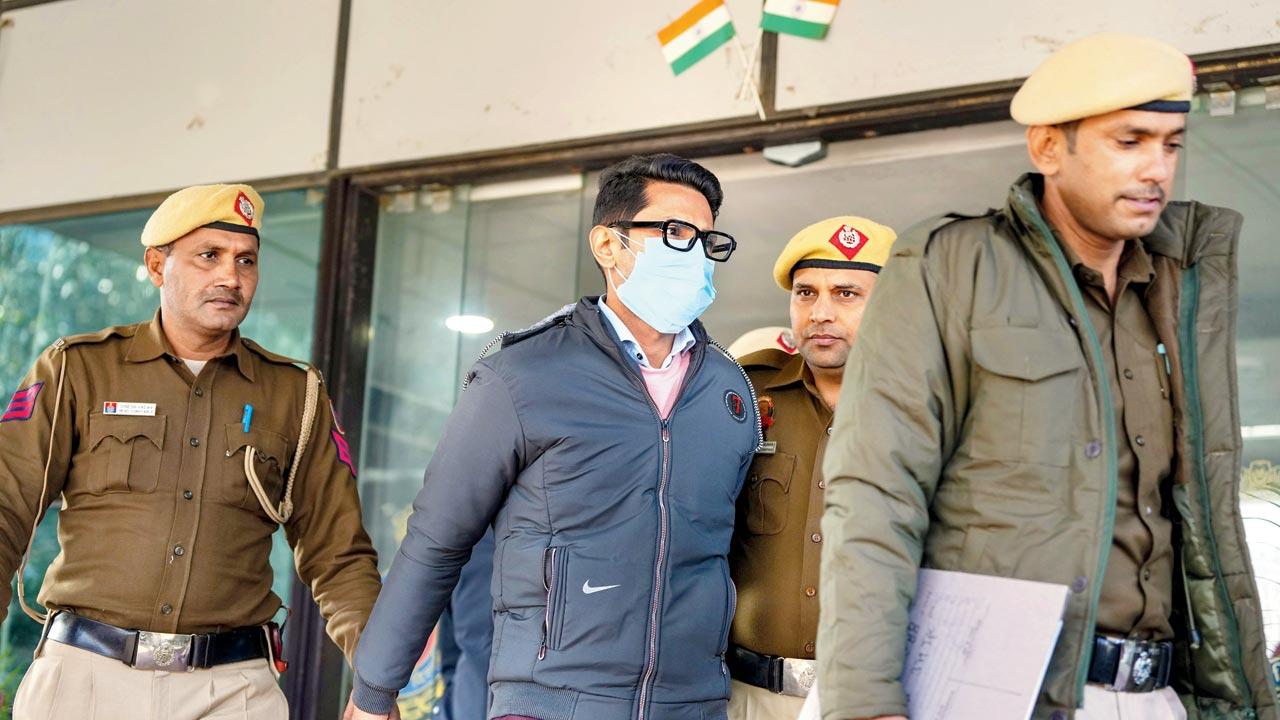 After Shankar Mishra, the accused in the Air India urination case, claimed that the complainant had soiled her own seat, the latter on Saturday rubbished the allegation calling them “completely false and concocted,” adding that the nature of the comments is “derogatory”. Pic/PTI
After Shankar Mishra, the accused in the Air India urination case, claimed that the complainant had soiled her own seat, the latter on Saturday rubbished the allegation calling them “completely false and concocted,” adding that the nature of the comments is “derogatory”. Pic/PTI
A Mumbai-based wedding planner blames it on free booze, served during get-togethers and weddings. He remembers how at one wedding in Punjab, they had 16 wheelchairs to take the drunk baraatis back to their rooms. “In Delhi, you will see the groom’s father roaming around with a bottle in his hand, much like other guests. In Mumbai, guests tend to be a little more restrained.”
Not everyone agrees. Rakshay Dhariwal, founder and managing director of Pass Code Hospitality, and co-founder of India Cocktail Week says that while alcohol can be tempting when it is free, “it most likely will not compel someone who was not drinking to drink”. According to him “under-exposure” to alcohol is the real problem. “When something has been kept from you for so long, sudden access can lead to bingeing. It may also be a reaction to situations in someone’s life—People turn to alcohol as a crutch.” He thinks that alcohol should be introduced “to people openly and honestly… they should be given time to form the kind of relationship they want to with it”. “In my experience, people who have seen those around them drinking responsibly, will never abuse alcohol.” When asked which spirits are popular among Indian, he says the preference changes vastly from region to region. “During winters in the north, we see a higher consumption of rum. In terms of the rural population—southern states like Kerala drink a lot of toddy, the northeast drinks rice wine, Goa drinks feni and the central states drink mahua. The upwardly mobile in big metropolitan cities like Delhi, Mumbai, Bengaluru etc. used to always prefer scotch or a single malt in the past. We saw a trend of them moving to high-end bourbons, flirting a bit with gin; they have now moved on to cent per cent agave spirits like tequila or mezcal.”
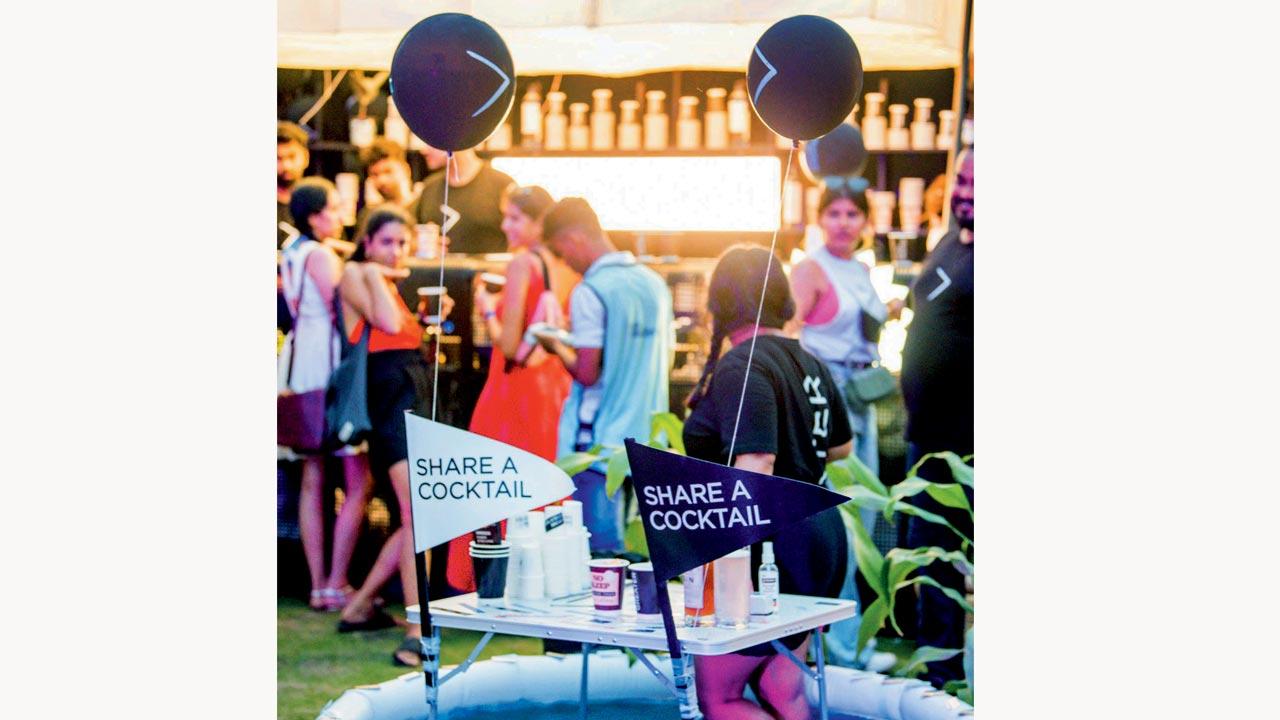 According to a 2020 study, Alcohol consumption in India: An epidemiological review, the 12-month prevalence of alcohol use disorders in India in the year 2010 was 2.6 per cent and that of alcohol dependence was 2.1 per cent. Representation Pic/India Cocktail Week
According to a 2020 study, Alcohol consumption in India: An epidemiological review, the 12-month prevalence of alcohol use disorders in India in the year 2010 was 2.6 per cent and that of alcohol dependence was 2.1 per cent. Representation Pic/India Cocktail Week
A pilot who has been flying for 15 years says unrestrained alcohol consumption is not a problem unique to Indians alone. “It happens everywhere. Most people won’t give up the opportunity to drink.”
Lalit Kalani, co-founder of Good Barrel Distillery, which recently launched a homegrown gin called Soci, agrees. “I have spent 17 years in the US and have seen situations go out of hand inside clubs and in public places there too.” According to Kalani, India has one of the highest liquor consumptions in the world with more people appreciating and experimenting with alcohol. “There was a time when being drunk became an excuse for a lot of things, which is no longer the case. Things are changing for the better, and people are now more likely to take a stand against questionable behaviour.”
Mittal, who has worked with people from other nationalities, says, “When it comes to alcohol, Koreans consume more per capita and when it comes to aggression, nobody comes close enough to the Brits”. “It has less to do with nationalities and more with who people are. Also, because liquor is taboo in our country, I feel we are more conscious of being judged for our behaviour and thus, try to stay in control, especially on foreign soil.”
Event planner Vijay Rao, who works in the field of alcohol de-addiction, shares a more unpopular opinion. “Indians don’t know how to conduct themselves after drinking,” he claims. “Countries like Canada have state services that take people home from bars. Similarly, other developed nations have placed checks and balances. India is yet to catch up,” says Rao, adding that many people also take pride in how they are perceived. “The Japanese also get drunk, but clean up after. Some Indians, on the other hand, feel that they can drive after drinking, and bribe if caught.” While several international alcoholic companies have spent money on running awareness campaigns on responsible drinking, Rao says Indian brands are yet to make a foray into this space. “If we visit a police station here, regardless of the time, there will always be a lady complaining about her husband who got drunk and beat her up.”
Are more Indians drinking?
According to a Lancet report in July 2022, there has been a slight increase in alcohol consumption in India since 1990. The alcohol consumption has increased by 5.63 per cent among men in the age group of 40-64, 5.24 per cent among 15-39 and 2.88 per cent among the elderly. In women, it has risen by 0.15 per cent in the age group of 40-64 years and 0.08 per cent rise in 15-39 years.
How to drink responsibly
According to healthdirect.gov.au, women planning a pregnancy or breastfeeding, and those younger than 18 or who intend to drive afterwards should not consume alcohol. No amount of liquor is safe if you are taking out your car afterwards and going to be on the road—crashes involve and put other people’s lives in danger as well. If you are drinking and want to handle it responsibly, it is important that you set a limit for yourself and then keep a watch on your drinks, especially if you are at a party, wedding or a place where it is available for free. Pro tip: Try to finish your drink before you top up your glass. Another good way is to slow down, keep it to a drink an hour, and maybe have water first to quench your thirst, opt for low-alcohol drinks or take sips instead of gulping down your drink. Avoid drinking games or bottoms-up calls or anything that aims at getting you drunk faster—the aim is to have a good time. Avoid drinking if you are feeling anxious, sad, unsafe, taking medicines or don’t want to drink.
 Subscribe today by clicking the link and stay updated with the latest news!" Click here!
Subscribe today by clicking the link and stay updated with the latest news!" Click here!










